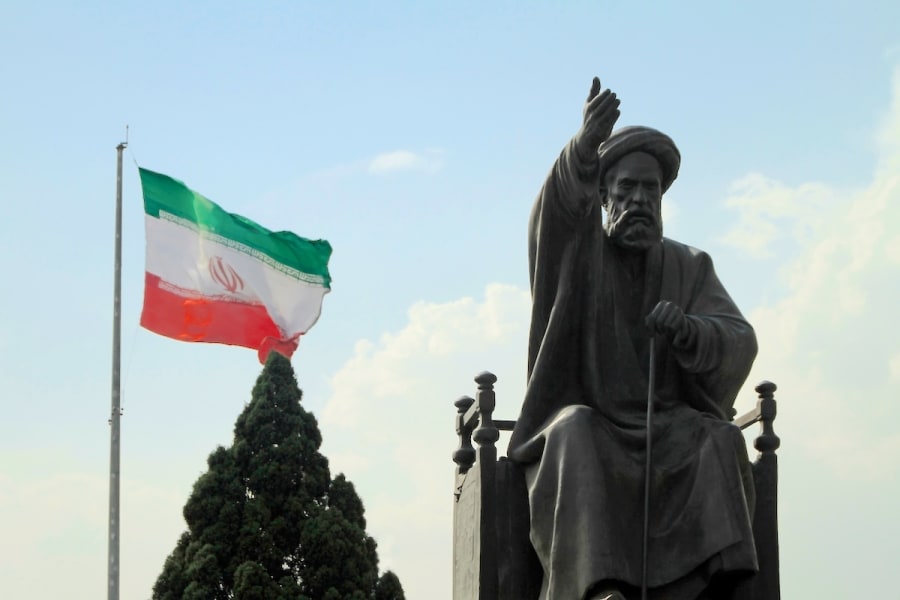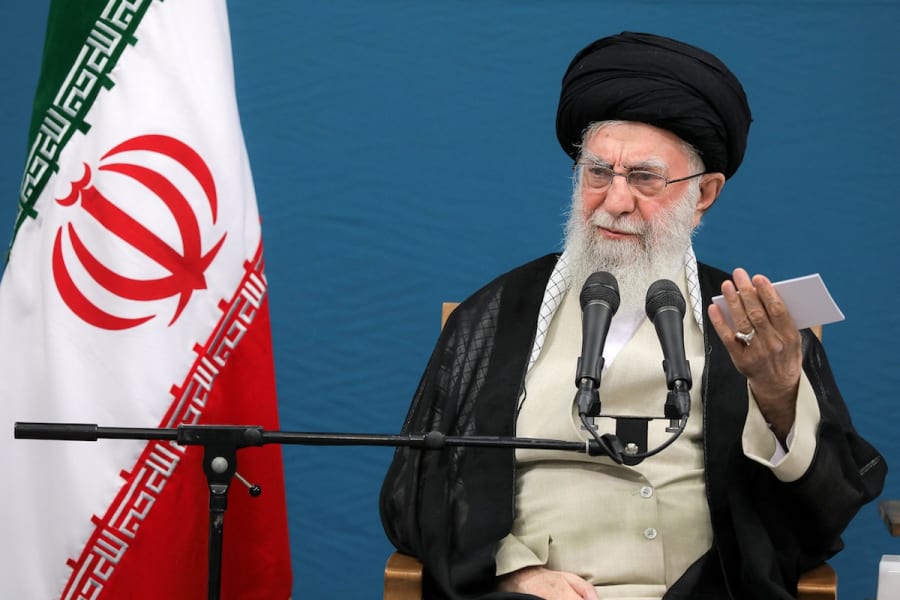Death by a thousand cuts or one big blow: Iran's impossible choice after Israel's strike

"First they ignore you, then they laugh at you, then they fight you, then you win," goes the famous saying often misattributed to Gandhi. In the Middle East, the progression follows a darker path: first, they belittle your attack, then they promise retaliation, then they threaten you with much harsher retaliation, and finally – it's your turn to retaliate.
This familiar dance is playing out once again in the aftermath of Israel's unprecedented October 26, 2024 strike on Iranian territory, where Israeli forces conducted three waves of strikes against approximately 20 locations in Iran, Iraq, and Syria. The targets included sophisticated S-300 air defense systems (Russian-made surface-to-air missile systems considered among the world's most advanced), drone production facilities, and missile manufacturing sites.
Initial downplaying phase
In the immediate aftermath, Iranian officials moved swiftly to minimize the attack's significance. Iran's state media initially reported only minor damage to non-critical facilities, describing the attack as "unsuccessful." The Islamic Revolutionary Guard Corps (IRGC) spokesperson claimed that most incoming missiles and drones were intercepted, resulting in what they termed "negligible damage." Iranian Foreign Minister Abbas Araghchi reinforced this narrative, stating that the attack "failed to achieve any significant military objectives."
However, the reality appeared more complex. Independent analysts noted that commercial satellite images, though low resolution, indicated damage to three buildings in the Parchin complex, including two involved in mixing solid fuel for ballistic missile engines. Iranian officials later confirmed that five people were killed in the attacks, including four Iranian Army officers and one security guard.

From denial to strategic response
Within 48 hours, Iran's tone began to shift dramatically. Supreme Leader Ayatollah Ali Khamenei convened an emergency meeting of the Supreme National Security Council to discuss potential responses. IRGC Commander-in-Chief Hossein Salami announced that Iran was "carefully assessing the situation" and would "respond at the appropriate time and place."
The regime's initial restraint likely served multiple purposes: buying time for strategic assessment, preventing immediate domestic pressure for retaliation, and maintaining control over the narrative while military options were evaluated.

Rhetoric escalates
The supreme leader's rhetoric has grown increasingly forceful. Khamenei has warned that the U.S. and Israel will face a "devastating response," stating explicitly that "the adversaries, including the U.S. and the Zionist regime [Israel], must understand that they will undoubtedly face a severe response for their actions against Iran and the resistance front."
Iran appears to be coordinating its response with regional allies. Haidar al-Lami, a member of the political bureau of Harakat Hezbollah al-Nujaba, an Iraqi terrorist militia, stated that his organization was "fully coordinated with Iran to organize the timing and location of this response." Al-Lami suggested that Iran has "the right to target the Zionist entity from anywhere within Iraq."

Potential response scenarios
According to Israeli military assessments, Iran faces several options for retaliation, each carrying its risks and potential consequences:
1. Direct missile attack: Iran could launch 150-200 missiles from its territory, similar to previous responses. This would demonstrate resolve but risks significant Israeli counter-strikes on Iranian soil.
2. Yemen-based strike: The Houthis, who have an open account with Israel over the September 29 attacks on their oil facilities in Hodeidah port, could launch attacks from Yemen. This provides Iran some deniability while still delivering a message.
3. Iraq-based response: Iranian-backed proxies in Iraq, already launching suicide drones into Israel, could escalate their attacks. However, this risks legitimizing Israeli strikes on Iraqi territory.
4. Lebanon escalation: A large-scale attack from previously unused areas in Lebanon would mark a significant escalation, though it might not be considered proportionate to Israel's strike on Iranian territory.
5. "All-out" response: The most extreme scenario involves Iran launching attacks from multiple fronts simultaneously. While this would demonstrate maximum force, it could provide Israel legitimacy to strike any target in Iran, including oil facilities and nuclear sites.

Potential Israeli counter-responses
Israel's response options would likely scale with the severity of Iran's attack:
– For limited proxy attacks, Israel might continue its current pattern of precise strikes against Iranian-linked targets in Syria and Lebanon.
– A direct Iranian missile attack could prompt strikes against key Iranian military facilities and missile sites.
– In case of an "all-out" Iranian response, Israel might target Iran's nuclear infrastructure and oil facilities.
Israeli officials have already signaled that regardless of where Iran chooses to attack from, Israel's response will be on Iranian soil.

Strategic implications
The current crisis represents more than just another round of hostilities – it marks a fundamental shift in the Iran-Israel shadow war. By striking deep within Iranian territory, Israel shattered decades of established rules of engagement and demonstrated a previously unthinkable capability to hit targets at will inside Iran. More devastating still, Israel has systematically degraded Iran's carefully constructed proxy network.
In the Middle East, where strength and its projection are everything, this dual blow strikes at the very foundation of Iran's regional power structure. The ayatollah regime now faces an existential dilemma. If Iran proves unable to maintain its self-proclaimed position as leader of the "resistance front" against Israel and the West, the entire revolutionary regime could begin to crumble from within. Yet their response options present an impossible choice: a measured attack risks appearing weak, accelerating that internal decline. At the same time, a massive retaliation would give Israel the legitimacy to truly paralyze Iran's economic and military capabilities – leading to a projected failure of the regime to pay salaries to the Revolutionary Guards and feed their close to 90 million citizens – who already struggle financially – leading potentially to a crumbling of the regime from within.
As we noted at the start, first they belittle your attack, then they promise retaliation, and then they threaten much harsher retaliation – maybe they should have stopped there.

Tolik is a Middle East analyst and media professional with extensive experience in covering regional geopolitical developments. His background spans analytical journalism, media production, and strategic communications, having contributed to major Israeli and international television networks and newspapers.














